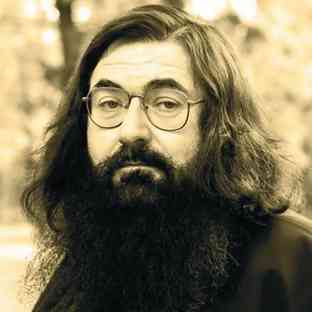History of the Yiddish Language (Evening)
Tuition: $300 | YIVO members: $225**
Registration is closed. Sign up for YIVO's email list to receive announcements of upcoming classes.
This is a live, online course held on Zoom. Enrollment will be capped at about 25 students. All course details (Zoom link, syllabus, handouts, recordings of class sessions, etc.) will be posted to Canvas. Students will be granted access to the class on Canvas after registering for the class here on the YIVO website. This class will be conducted in English, and any readings will be in English.
Instructor: Dovid Katz
Focusing in on the origins of Ashkenazic civilization, this course will begin by conceptualizing early Yiddish in a society with three Jewish languages (Hebrew, Aramaic, Yiddish) and will pivot to the development of Yiddish per se, alongside west-to-east migration precipitated by the Crusades and other episodes of violent intolerance.
The cultural dialectology of Yiddish and Eastern Ashkenazic history will be discussed, with an overall East European tolerance punctuated by massacres and false messiahs. These were followed by Hasidism, demographic explosion, and the rise of modern literary genres, followed by late 19th century political polarization linked to contemporary revolutionary movements ranging from revolution at the left, to Zionism at the nationalist end of the spectrum, all of them giving rise to a major new European literature in the folk language. The twentieth century creation and achievements of modern Yiddish institutions, Yiddish-Hebrew battles, and the internal conflicts centered on religion, politics, culture, or aspects of dialects, vocabulary, pronunciation and spelling. Discussion of the sociology of Yiddish with reference to the recurring phenomena of love and hate for the language. Twenty-first century Yiddish debates. The advent of a new Hasidic period: the final session will include a survey of current Hasidic magazines (and video clips) alongside analysis of the contemporary secular scene.
Course Materials:
This course will use the second revised edition of the instructor's Words on Fire: The Unfinished Story of Yiddish (Basic Books, NY 2007) (Available here). The instructor will provide all other course materials digitally throughout the class on Canvas.

Dovid Katz is a Brooklyn-born, Vilnius-based scholar, author, and Holocaust history advocate. He founded and led Yiddish Studies at Oxford (1978-1997), and after a stint at Yale as visiting professor (1998-1999) relocated to Vilnius where he founded Yiddish studies at Vilnius University, where he was professor from 1999 to 2011. From 2016 to 2020 he taught philosophy and creative writing at Vilnius Gediminas Technical University. His Yiddish books include a work on Yiddish stylistics (1993) and four volumes of Yiddish fiction (1992, 1993, 1996, 2020). In English, his books include Grammar of the Yiddish Language (1987), Words on Fire: The Unfinished Story of Yiddish (2nd revised edition 2007), Seven Kingdoms of the Litvaks (2009), Lithuanian Jewish Culture (2nd revised edition 2010), and Yiddish and Power (2015). He is currently at work on A Yiddish Cultural Dictionary, a free online English-Yiddish dictionary comprising to date half a million Yiddish words of text and over 20,000 entries, and an in-progress translation of the Bible into Lithuanian Yiddish. His online teaching in 2021 has included pioneering courses on current Hasidic Yiddish publications and on Ashkenazic Hebrew. Most recently, he has put online his evolving Lithuanian Yiddish Video Archive (LYVA), comprising hundreds of videos from his three decades of expeditions to the Lithuanian (Litvak) Yiddish lands (Belarus, Latvia, Lithuania, northeastern Poland and eastern Ukraine), to seek out the last in-situ survivors and preserve for posterity their language and culture. His website is www.dovidkatz.net.
**Become a member today, starting at $54 for one year, and pay the member price for classes! You’ll save $21 right now, and more on future classes and public programs tickets.





